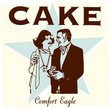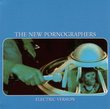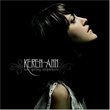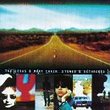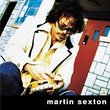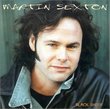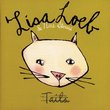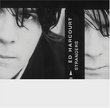| All Artists: John Cale Title: Paris 1919 Members Wishing: 7 Total Copies: 0 Label: Reprise / Ada Release Date: 10/26/1993 Genres: Alternative Rock, Folk, Special Interest, Pop, Rock Styles: Hardcore & Punk, Experimental Music, Singer-Songwriters, Adult Alternative, Progressive, Progressive Rock Number of Discs: 1 SwapaCD Credits: 1 UPCs: 075992592628, 603497981120 |
Search - John Cale :: Paris 1919
 | John Cale Paris 1919 Genres: Alternative Rock, Folk, Special Interest, Pop, Rock
John Cale has one of the richest resumes in pop, with experience in avant-garde music even before he met Lou Reed and they formed the Velvet Underground. His record productions include such landmarks as the debut by the... more » |
Larger Image |
CD DetailsSynopsis
Amazon.com John Cale has one of the richest resumes in pop, with experience in avant-garde music even before he met Lou Reed and they formed the Velvet Underground. His record productions include such landmarks as the debut by the Stooges and Patti Smith's Horses. But as a solo artist, Cale has often seemed caught between his sophisticated leanings and his fondness for punky attitudes. Two early albums, Vintage Violence and Paris 1919, were the work of a highly-developed pop musician; later albums found Cale the pop provocateur dominating the show. Cale's a fairly deadpan singer, but the sweet mix of rock band instrumentation and fuller orchestration make --Paris 1919 one of his strongest efforts, and the lovely "Andalucia" one of his very best songs. If the righteous boogie of "Macbeth" sounds familiar, that's because Lowell George and Richie Hayward, guitarist and drummer of Little Feat, formed the core of Cale's studio band. --John Milward Similarly Requested CDs
|
CD ReviewsGENTLE POP SONGS FROM JOHN CALE...? Larry L. Looney | Austin, Texas USA | 05/02/2004 (5 out of 5 stars) "The cover pic might give it away - John sits in a wicker chair, in a very dapper white suit and vest, staring calmly into the camera (or the eye of the viewer, perhaps). The music on this album is indeed some of the gentlest he ever recorded - pop songs (his own slightly skewed variety, of course...) recorded in Los Angeles in 1973, augmented by some lovely orchestral arrangements. The only song in the set that comes close to a `rock' motif is `Macbeth', Cale's reworking/reprise of Shakespearean tragedy - the rest are slow-or medium-tempo numbers that all fall pretty much into the `mellow' category. If you read `mellow' as `boring', however, you'd be sadly mistaken - the songs here are built upon some lovely, memorable melodies and arrangements, but they're far from boring. Cale's lyrics here are as wry and intelligent as on any of his more raucous releases - there's insight, humor and irony aplenty in these tunes. He comments on an array of subjects - loneliness, history (and the lessons we either learn or don't, as the case may be), morality, longing, love, pretension, art, religion (this subject being mentioned/invoked more than a couple of times), and more. For instance, in `Hanky panky nohow' Cale sings: `Nothing frightens me more than religion at my door - I never answer panic knocking...' In `Andalucia', a beautiful love song, the image of `castles and Christians' is painted; and in `Paris 1919' which I read as a ghost story of sorts), the perceived threat or terror felt at the encounter with the unexplainable is answered with `I'm the bishop and I've come to claim you with my iron drum'.And speaking of ghosts, their presence haunts several of the songs - ghosts from history (Columbus, Segovia, Graham Greene, Macbeth and Banquo) parade before us, and in general the taste and feeling of eras bygone inhabit the program, leaving the listener with the feeling of actually witnessing, albeit it in an evanescent form, scenes from other times. Cale's intellect and imagination (and, again, his humor) are powerful tools - he pulls it off nicely, that which might be handled clumsily by an artist less deft.This is certainly a far cry from the stark and seminal FEAR, and the rocked-out SLOW DAZZLE that were to follow. For a really raw, brutal live recording (and a great, energetic document), check out SABOTAGE from 1979. PARIS 1919 is definitely a transition album from his beautiful THE ACADEMY IN PERIL (1972), which is my all-time favorite from his catalogue, to the harsher music that would follow - but an essential document for anyone who wants to understand the complete artist." A poetry album to follow you in your life william robert | Greer , SC , USA | 12/06/1999 (5 out of 5 stars) "When Paris 1919 was issued , I was 18 . Glitter , decadence & old time music were up to date . John s album was clearly looking in the " good old European time " direction .But it was more than that . The perfect mixture of bombastic orchestration ( Chris Thomas , at the same time than Procol Harum' s Live , David Bowie' s Hunky Dory .. ) , decadent poetry ( it was an influence for me , as well as Beaudelaire or Rimbaud ),insiduous melodies caught me for years , making my LP now full of sratches & rumors, ( particularly Antartica starts here ) I m happy to see it on CD & envy those who still have to discover it ." The softer side of Cale Pieter | Johannesburg | 12/22/2002 (5 out of 5 stars) "This classic early solo album is like a collection of short stories and contains some of Cale's most poetic lyrics. There is a subdued, almost melancholic air about most of these, like Child's Christmas and Hanky Panky Nohow. The impressive orchestral backing make it less of a rock album than most of his best later work (like the Island period). An exception is Macbeth - a robust slice of rolling rock. The arrangements may be orchestral, but the melodies are simple and tuneful for the most part, as on the lovely Andalucia. The delightful title track with its edgy arrangement, birdsong and "you're a ghost" refrain is especially evocative, while the swaying reggae beat and trenchant lyrics of Graham Greene make this another classic track, and quite catchy too. Half Past France is a sad slow ballad and Antarctica is a moody piece with subdued, whispered vocals. Paris 1919 is a very "literary" album and Cale at his most accessible."
|

 Track Listings (9) - Disc #1
Track Listings (9) - Disc #1